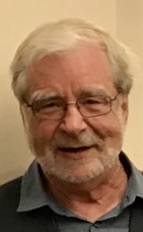Trump Voters vs. Public Health
- Marvin T. Brown

- Apr 6, 2020
- 2 min read
Updated: Jan 20

I can imagine that some Trump voters have rolled their eyes more than once when learning what they voted for when voting for Trump. The latest, and perhaps the deadliest, is their vote against public health. Some voters may not have intended this, but whatever their intention, that seems to be the consequence.
So, what is the meaning of public health? You could see it as a positive response to social sickness. By “social sickness” I don’t mean being sick of social media, or what some might call a “sick society,” but rather illnesses that occur because of our participation in various social worlds. From this perspective, the coronavirus would be a social sickness and public health a government solution.
To see a brief history of the government’s program in public health, you can check out this page: History. The story begins with a governmental response to sailors and disabled seaman in 1798 with the establishment of Marine hospitals. The scope of public health continued to expand with national quarantine and disinfection measures, as well as immunization programs. By the early 20th century, the government investigated such diseases as tuberculosis, hookworm, malaria, and leprosy, and it also looked at sanitation, water supplies, and sewage disposal. More recently, the Public Health Service has responded to the diseases of lung cancer, chronic bronchitis, AIDS, and to health issues after Katrina and other hurricanes.
The reason for focusing on social sickness is to give a context for public health. If someone doesn’t recognize social reality—they may believe only individuals exist—as is the case for libertarians, then public health would limit itself to curing sick individuals, rather than preventing them from getting sick. I don’t know if Trump has a contextual notion of the social in his conceptual framework.
A more important question is whether Trump has a notion of the public? Public health refers to the government—on various levels—engaged in preventing social sickness. Universal health care, of course, would aim to prevent social sickness by giving people access to health care. It actually makes more sense, given the language of social sickness and public health, to say that universal health care is not a social program, but a public program. Just as we have public schools and public parks, we also need a public health system to ensure a vibrant democracy.
When Trump cuts the funding for the Department of Health and Human Services, and even the Centers for Disease Control and Prevention, when he lowers the standards for carbon emissions, when he refuses to develop a national plan to address the coronavirus crisis, what conclusion can one draw other than he hates public health. Some of his voters probably do as well. My guess is that some do not. In any case, that is what they got.

The recent actions of the Republican legislature in Kansas overruling the Governor’s actions limiting public gatherings in light of the coronavirus, raises the question of whether our constitution protects public health. Did our founders have that in mind?
https://www.dailymail.co.uk/news/article-8202787/Kansas-lawmakers-OVERTURN-limit-social-gatherings-people-head-church-Easter-Sunday.html